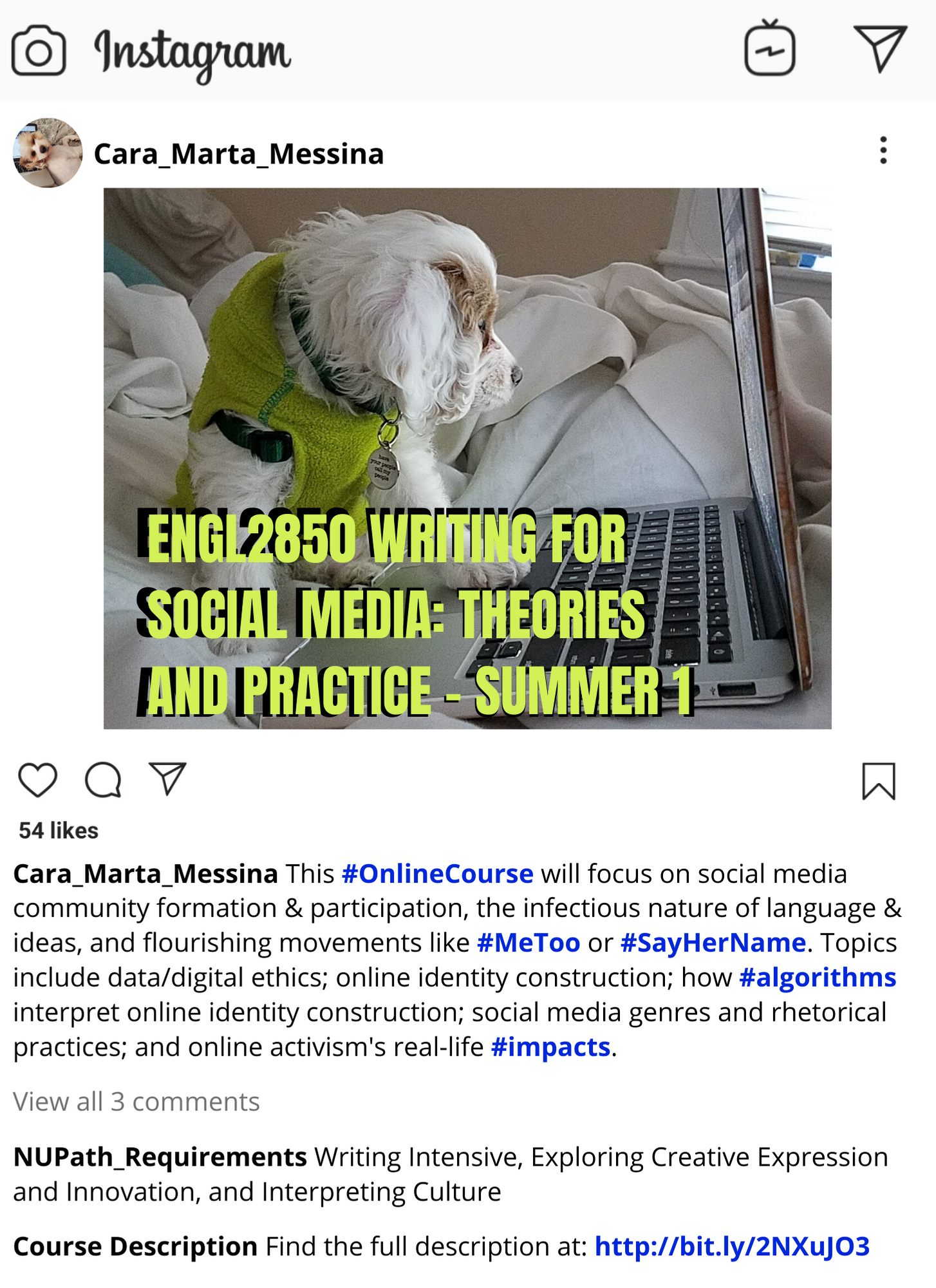Critical Digital Pedagogy
My pedagogy and overall values center around transparency, documenting and valuing process, subverting normalized cultural and social narratives, vulnerability, collaboration, justice, and cross-disciplinary conversations. Critical digital pedagogy centers challenging systems of power both embedded within as well as using digital methods. Specifically, I use digital data, digital research methods, digital and data ethics, and fan studies across my teachings.
Writing for Social Media

Social media writing, like all writing, entangles political, ethical, social, and cultural values. Writing and participating in any genre requires an awareness of discourse communities, target audiences, motivations/purposes, and writing conventions that may included or challenged. In this course, students explore how these values play out in social media writing, community engagement, and research. Students will engage with social media communities of their choosing, reflect on their engagements, conduct their own (ethical) social media writing research, and read scholars’ social media research. Read the syllabus here.
The third assignment in this course on Digital Activism Artifacts invited students to create and post digital activist artifacts during the mainstream resurrgance of the Black Lives Matter movement in early summer 2020. Students used this opportunity to either get their feet wet as digital activists and learn more about systemic racism and oppression, while others continued their own activist journeys.
Digital Integration Teaching Initiative
I helped pioneer DITI at Northeastern University, building the initiative from the ground up. We created a series of modules on computational text analysis, data ethics and surveillance, mapping, digital storytelling, coding to analyze data, and more. DITI's definition of a digital profiency module, which I co-wrote along with the directors and my colleagues, is "Digital integration modules teach students to be critical, ethical, and responsible consumers and users of digital tools, technologies, and/or methods. These modules include not only what particular digital tools, technologies, and methods can do, but, more importantly, how they work and why they are useful."
Digital Pedagogy Project: remiXML
Inspired by digital pedagogy and the notion of coding as writing, the First Year classrooms I create center around utilizing a self-designed XML schema inspired by how fanfiction writers approach the texts they love. The schema is currently in its second version, heavily revised from the first version. The RelaxNG schemas and the XSLT stylesheets are available on my GitHub page.
Find more on the remiXML project and student samples here.
Women Writers Vector Toolkit
For the Women Writers Vector Toolkit, I designed three different assignments that can be implemented in classroom settings. The first is a basic introduction to word vector analysis and the Word Vector Interface. The second looks specifically at the clustering function as a method for discovery. The final assignment asks learners to compare literary centuries based on the corpora. To read these assignments and use them in your course, visit the Women Writers Vector Toolkit assignments page.